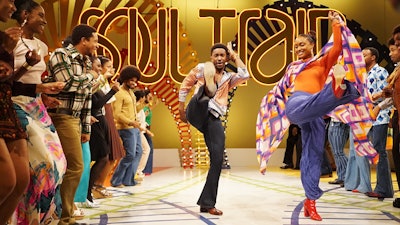Fifty years ago, the iconic "Soul Train" pulled into viewers’ homes via a nationally syndicated television program that would forever cement its creator, producer and host, Don Cornelius, as a cultural genius. Coming out of the tumultuous 1960s – with the Civil Rights Movement, riots, violence against Black people in cities across America, the assassinations of Black America’s biggest heroes, and a decade defined by struggle for progress – "Soul Train" was a vibrant, triumphant, unapologetic expression and glorification of Blackness. It built on the Black Power movement that started the decade before, embracing afros, dark skin, Black music, culture, fashion, and dance.
It launched the careers of not just singers, but brands as well. 
“It was a full-on package of fresh culture delivered weekly. In our media saturated 21st century there's no parallel because Soul Train was so singular, particularly in the period from 1971 into the late '80s,” said Nelson George, author of The Hippest Train in America: Soul Train and The Evolution of Culture and Style.
Dr. Portia Maultsby, professor emerita of ethnomusicology and founding director of the archives of African American music and culture at the University of Indiana, remembers "Soul Train" being “a source of tremendous pride for Black people to come out of the shadows into the mainstream displaying their true cultural identity through music, fashion, and dance.
"I think it was a wonderful signal. … It indicated that it’s ok to be who I am and to display my cultural uniqueness that often differed from the mainstream in fundamental ways.”
Not only that, she added, “Black people were in control of their own image and representation in society for the first time.”




















